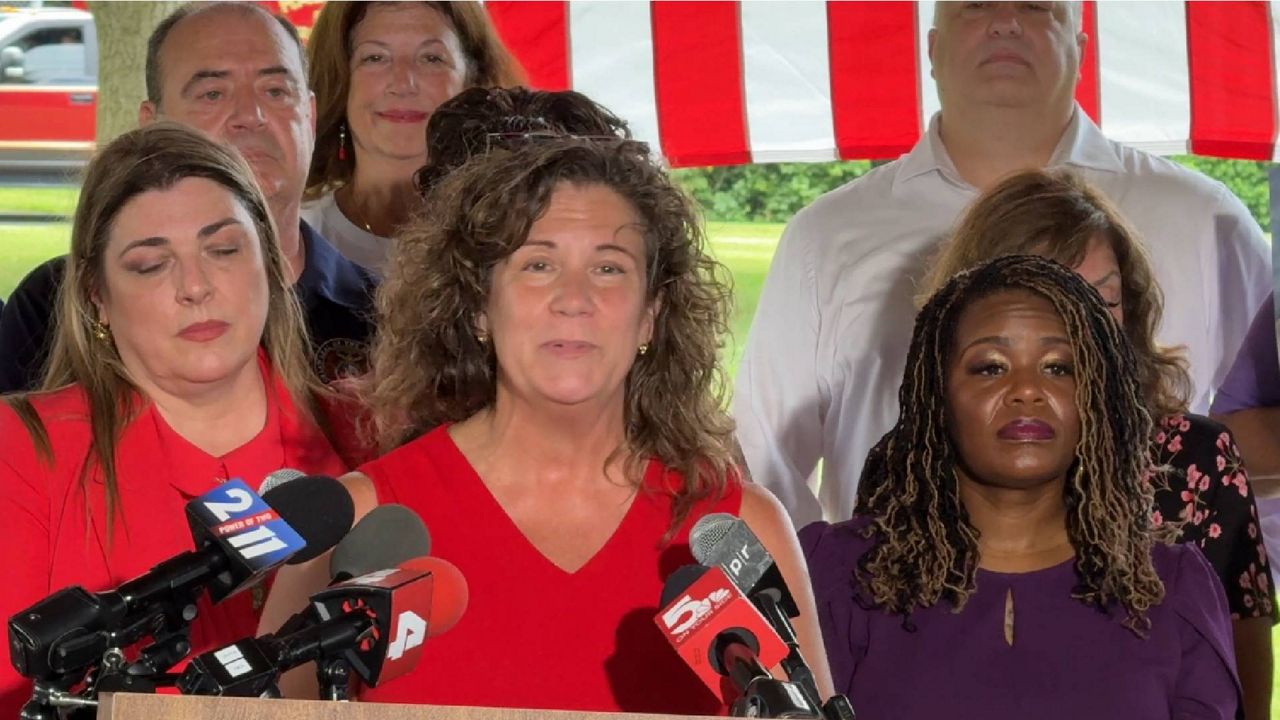HAZELWOOD, Mo.— A Detroit-area woman is among those hailing a new law that expands a federal trust fund that makes payments to those who may have been sickened by nuclear contamination.
Kim Visintine, a local ER nurse practitioner, was raised in the St. Louis area with a career in the automotive industry that ultimately brought her to Michigan.
In 2000, her son was born in St. Louis with a rare brain cancer, underwent neurosurgeries at just days old and later went on chemotherapy. He died in 2006.
In the years that followed, Visintine learned of others who grew up in the same area, who played around Coldwater Creek, which meandered through several municipalities in the region, and who had sick relatives or were sickened themselves.
She started a Facebook group to give voice to the concerns and advocate further.
“When we started the Coldwater Creek group, nobody believed us. We were just a bunch of meddling kids that grew up in north county that were all dispersed across the country and we had all these cancers and nobody knew that the creek was contaminated and there wasn't a cancer cluster. We just were all on an island,” she said during a trip back to St. Louis on Tuesday.
As a result of the activism of Visintine and others, the U.S. Army Corps of Engineers is now in the middle of a federal remediation project to clean up the creek, which was contaminated by nuclear waste produced during the Manhattan Project era in the region.
Coldwater Creek won’t be fully remediated until well into the next decade.
“It wasn’t just the people of Missouri who had waited for 70 years to have justice done. It was the people of The Navajo Nation, it was the people of Utah, it was the people of New Mexico, it was the people of Idaho, it was the uranium miners and atomic veterans from all over the country who had been waiting for decades for the federal government to finally own up to what it had done,” said Missouri U.S. Sen. Josh Hawley, the Republican who took up the cause as a legislative priority two years ago, working with New Mexico Sen. Ben Ray Luján, a Democrat, as co-sponsor.
Under the expanded Radiation Exposure Compensation Act, people who can prove they or an authorized representative were in one one of 21 St. Louis-area ZIP codes, or parts of Kentucky, Tennessee, Alaska, New Mexico, Utah and Idaho for two years and suffered qualifying illnesses after Jan. 1, 1949, can choose between a $50,000 lump sum or reimbursement of medical expenses.
Visintine’s son wasn’t in the impacted area, which means her family can’t claim a survivor's benefit.
“It's not about the money. Nothing can bring my son back,” she said. But the designation means people in the impacted areas will be eligible for health screenings and other services that can lead to early detection.
“I've dedicated the past 15 years of my life to Coldwater Creek….Today is so monumental,” she said.




